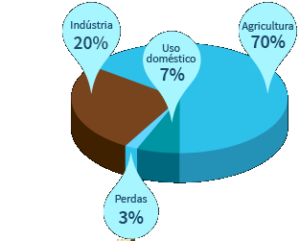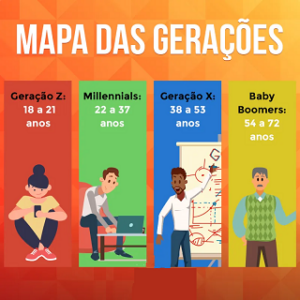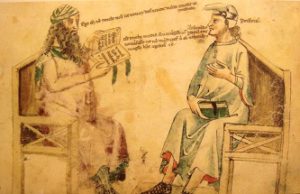
Arquivo para a ‘Tecnologia’ Categoria
O problema da água e do saneamento
Embora o planeta tenha água em abundância o problema da água não é desprezível e o que afeta diretamente o planeta, em especial os pobres e os que vivem em regiões sem saneamento básico, é o problema da água potável, e nele está o grave problema da contaminação por atividades agrícolas.
não é desprezível e o que afeta diretamente o planeta, em especial os pobres e os que vivem em regiões sem saneamento básico, é o problema da água potável, e nele está o grave problema da contaminação por atividades agrícolas.
Assim é preciso junto ao inadiável problema da gestão sustentável da água, pensar um desenvolvimento sustentável em três dimensões: social, econômica e ambiental, mesmo aqueles que afirmam política públicas para isto não aceitam a redução de atividades econômicas rentáveis e poluentes.
Os estudos apontam que as causas maiores, cerca de 70% são devido ao mal uso do solo na agricultura (defensivos agrícolas, assoreamento de rios, monocultura intensiva, etc.), depois vem a poluição da indústria 20%, o uso doméstico 7% e as perdas 3% (veja a figura acima).
Por que foi da biologia e dos ecossistemas que vieram as ideias da complexidade, é este o setor mais sensível a pequenas atitudes que podem e devem mudar o planeta no futuro, recolher o lixo poluente, fazer coleta seletiva e até mesmo reaproveitar agua de chuva e usar energia solar são atitudes que podemos tomar individualmente e serão benéficas como um todo, vejam que a complexidade podem envolver ideias simples de serem praticadas.
A educação das novas gerações devem assim ser responsabilidade de todos, do poder público, das escolas e das famílias, pequenos hábitos inseridos no dia a dia podem transformar em escala um número enorme de situações, efeito conhecido na complexidade como “efeito borboleta”, a batida da asa da borboleta podem influenciar o clima, e o desmatamento e descaso com a natureza tem efeito negativo no clima.
As pesquisas em planetas onde pode haver vida tem como primeiro item a presença de água, e providenciar água potável é então a primeira atitude em defesa da vida.
A felicidade em Tomás de Aquino
Para analisar a beatitude, que já esclarecemos que é também um tema da Grécia antiga para a felicidade, Tomás de Aquino aprendeu com o filósofo grego a distinguir entre duas formas diferentes de felicidade: as riquezas naturais que são aquelas pelas quais o homem é ajudado a compensar as deficiências naturais como a comida, a bebida, as vestes, a habitação, etc., e as artificiais aquela não auxiliam a natureza mas a submetem, como o dinheiro, mas a arte humana inventou para facilitar as trocas, para que fossem como medidas para coisas veniais, e influenciado por Boécio vai questionar se a riqueza é de fato a que dá posso a todos bens:
um tema da Grécia antiga para a felicidade, Tomás de Aquino aprendeu com o filósofo grego a distinguir entre duas formas diferentes de felicidade: as riquezas naturais que são aquelas pelas quais o homem é ajudado a compensar as deficiências naturais como a comida, a bebida, as vestes, a habitação, etc., e as artificiais aquela não auxiliam a natureza mas a submetem, como o dinheiro, mas a arte humana inventou para facilitar as trocas, para que fossem como medidas para coisas veniais, e influenciado por Boécio vai questionar se a riqueza é de fato a que dá posso a todos bens:
“A bem-aventurança é o estado perfeito da junção de todos os bens’. Ora, parece que pelo dinheiro poderão se adquirir todas as coisas, porque o Filósofo, no livro V da Ética, o dinheiro se inventou para ser a fiança de tudo aquilo que o homem quisesse possuir. Logo, a bem-aventurança consiste nas riquezas” (Tomás de Aquino, Suma teológica. Parte III).
Mesmo com a posse de uma ideia mais ampla de riqueza, a riqueza natural que Aristóteles previu, e a riqueza artificial também, em nenhuma delas o Aquinate vai reconhecer como fonte de felicidade, pelo fato que não tem um fim em si mesma, e as pessoas que as possuem tornam-na o fim último, torna-se fiança de algo.
E que valor pode possuir esta fiança em si mesma, Tomás de Aquino examina a honra, e diz neste sentido: “é impossível que a bem-aventurança consista na honra. A honra é prestada a alguém devido alguma sua excelência: e assim, é um sinal e testemunho daquela excelência que está no honrado”, pode também ser a fama ou glória, o poder, e os bens do corpo, porém todos estes bens em si mesmo também não traduzem em felicidade, mas apenas em falso conhecimento.
Assim é ela própria a bem aventurança, diz textualmente: “a bem-aventurança é o mais estável dos bens”, assim a falta de estabilidade da fama ocorre pelo fato de ela derivar, exclusivamente, do conhecimento humano, que, por sua vez, é limitado, e muitas vezes é mesmo falso.
De modo parecido argumentava Boécio: “o poder humano não pode evitar o tormento das preocupações, nem o aguilhão do medo”.
Quanto ao corpo, argumenta o filósofo cristão: “a bem-aventurança do homem é superior em todos os sentidos à dos animais, embora muitos animais superem os homens nos bens do corpo”, assim se a beatitude vem daí o homem estaria se igualando aos animais, e quão verdade é isto muitas vezes.
Mas o que é então a felicidade para o Doutor Angélico, que faz o mesmo questionamento de Boécio: “‘é necessário confessar que Deus é a própria bem-aventurança?” e concluirá que “a bem-aventurança é o último fim, para o qual naturalmente tende a vontade humana” e “para nenhuma outra coisa deve tender a vontade como para o último fim, a não ser para Deus, pois ele deve ser objeto de gozo, como diz Agostinho” (AQUINO, 2003, p. 62).
Pode-se aqui ter a síntese do que é a felicidade para os três grandes pensadores cristãos do período medieval.
Para alguns autores, como Luiz Alberto De Boni, a filosofia de Tomás de Aquino nestes moldes: “o bem e o fim se identificam”, possui assim uma escatologia, e se entendemos que o fim é apenas esta vida terrena limitada a um período temporal sua argumentação não é validade, porém se admitimos a eternidade, a felicidade como bem último é aquela que conquistamos já aqui mas que deve se prolongar além da vida temporal, fora disto é claro, somente os prazeres temporais.
No quadro acima, de autor anônimo, O homem rico e Lázaro, (cerca de 1610, Amsterdam).
AQUINO, Tomás de. Suma teológica. Vol III São Paulo: Loyola, 2003.
Transformação digital além da Buzzword
Alertamos e problematizamos nos 10 anos deste blog a transformação que estava sendo encaminhada pelas mudanças digitais, aspectos sociais, educacionais, industriais e até mesmo comportamentais, boa parte dos céticos reagiam, ironizavam ou desprezavam uma mudança real que estava acontecendo.
que estava sendo encaminhada pelas mudanças digitais, aspectos sociais, educacionais, industriais e até mesmo comportamentais, boa parte dos céticos reagiam, ironizavam ou desprezavam uma mudança real que estava acontecendo.
A pandemia mostrou que as ferramentas mais do que necessárias podem construir pontes, estabelecer relações novas, dinamizar empresas e evitar desperdícios de tempo, dinheiro e principalmente nestes tempos por em perigo a saúde.
Agora todos vivem a realidade digital, empresas sobreviveram por serviços online, famílias, grupos sociais, serviços públicos e reuniões de diversos tipos dependem das ferramentas digitais, os espetáculos dependem de lives, de meetings ou postagens em ferramentas de mídias sociais.
Uma buzzword surgiu muito forte a chamada “transformação digital”, porém o perigo do oportunismo é grande de empresas e sites que exploram e mistificam estes serviços e cobram caro por ele, assim alguns conceitos são necessários, primeiro o que acontece diferente na geração Z da anterior chamada de millennials, os que são nascidos no início do milênio, portanto antes do ano 2000, que agora tem de 22 a 37 anos.
Os millenials acompanharam a evolução a Web (as páginas, sites e blogs), nasceram numa realidade em que os computadores eram uma eletrodoméstico, assim só eram usados em casa e opcionalmente na escola, enquanto a geração Z através do celular levou o mundo digital a todo lugar, criam os grupos de chats e tem um comportamento diferente com a credibilidade dos sites, blogs e mídias de redes, criam suas próprias relações e ídolos, em geral diferente do tudo que é conhecido.
Embora mais fechados e com tendência a pouca relação social, são mais críticos que os millenials, mais ansiosos, são mais eficientes e são mais exigentes.
Assim as relações com o mercado são muito diferentes, voltam a preferir as compras em lojas físicas e selecionam bem o que compram, menos impulsivos e já tem a tecnologia com um excelente apoio, embora muito conectados já conhecem os limites da tecnologia.
Grandes revistas de economia como a Forbes e a Fortune fizeram análises da geração Z para entender a transformação de mercado necessária, a Forbes diz que ela representa 25% da população mundial atual, o meio digital é parte natural da vida deles, como a TV e o rádio das gerações passadas, enquanto a Fortune afirma que 32 da geração Z se esforça para um trabalho dos seus sonhos e descartam assumirem qualquer trabalho, embora temporariamente aceite para alçar o futuro.
Assim os CRMs ( Customer Relationship Management) antigos não funcionam e muitas críticas e análises feitas para a geração millenials estão ultrapassadas.
Segundo Kasey Panetta, pesquisadora da Gartner, 5 conceitos novos são emergentes: Composite architectures, arquiteturas ágeis e responsivas, Algorithmic trust, produtos, links, sites e transações confiáveis, Beyond silicon, os limites da lei de Moore da evolução dos computadores, agora tecnologias menores e mais ágeis são procuradas, Formative Artificial Intelligence (AI) adaptação ao cliente, customização dos serviços, tempos e localização, e o conceito Digital Me, uma espécie de passaporte para o mundo digital, ferramentas e sites que já conhecem o cliente e suas necessidades, formas de comportamento e preferencias.
Portanto todo o universo digital que parecia estável também vai desmoronar e muito do que se chama “transformação digital” é só uma mistificação digital, cuidado com oportunistas.
Panetta, Kasey. 5 Trends Drive the Gartner Hyper Cycle for Emerging Technologies, 2020. Disponível em: https://www.gartner.com/smarterwithgartner/5-trends-drive-the-gartner-hype-cycle-for-emerging-technologies-2020 , Acesso em: 15 de setembro de 2020.
A importância dos elos fracos
Em teoria de redes os elos fracos são importantes, não são nas mídias de redes como facebook, Instagram ou outra mídia, as redes são formas de relações interpessoais vinculadas a determinados interesses e grupos (hubs) que são importantes e poderiam ser mais se fossem intendidas sujas funcionalidades e modos operacionais.
mídias de redes como facebook, Instagram ou outra mídia, as redes são formas de relações interpessoais vinculadas a determinados interesses e grupos (hubs) que são importantes e poderiam ser mais se fossem intendidas sujas funcionalidades e modos operacionais.
O laço fraco de uma rede, alguém que está na periferia dela e com pouco contato com o grupo central (os hubs) são na verdade os grandes potencializadores destas redes, na vida social, na ciência e até mesmo na política foram pessoas com pouca ligação com os grupos de poder que fizeram a diferença.
Li de Alan Turing, criador do modelo do computador digital moderno, que são “as vezes das pessoas que ninguém espera nada que fazem coisas que ninguém pode imaginar”, ele participou de um projeto secreto na Bell Laboratories que desvendou o segredo da máquina Enigma, de codificação de mensagens dos nazistas durante a 2ª. guerra mundial.
Einstein passou por várias escolas, e não é verdade que foi mal aluno, ele detestou todas elas. seus pais e professores achavam que tinha limitação mental, quando na verdade a escola não o inspirava nada, considerava-as fracas.
Também Stevie Jobs pouco se interessou pelos estudos e era um aluno displicente em sala de aula, numa sala de aula do primário quando uma professora perguntou se eles entendiam o universo, ouviu a resposta dele que não entendia “é porque estávamos tão falidos”.
Muitos são as pessoas simples que apontam para um período de grande dificuldades, apenas pensadores midiáticos, de redes de interesses com públicos que querem ouvir determinadas respostas a conjuntura atual é que fazem sucesso, em geral dizem que a pandemia não é nada, que quando passar vamos estar felizes, sendo assim não são apenas políticos a olharem para uma realidade complexa com respostas simplistas e pouco elaboradas.
No final da semana que passou falamos que os “últimos serão os primeiros”, agora dizemos algo além disto, são eles que podem fazer a diferença, em especial no quadro de gravidade social e sanitária que podemos aqui olhar os elos fracos, na “teoria das redes sociais”.
Mark Granovetter que estudou o assunto explica que por estarem distantes, são estes laços fracos que são capazes de levar a mensagem para ser “compartilhada” com pessoas e grupos de outros círculos, expandindo a rede.
GRANOVETTER, M. The strength of weak ties. In: American Journal of Sociology, University, 1973.
Translatio studiorum e as técnicas da escrita
O longo período que foi desde o início da escrita registrada, a scriptura, até o surgimento dos copistas, chamado de oralidade mista, é chamado de translatio studiorum, onde a própria escrita vai passar por muitas variações técnicas, e nelas se destacam São Jerônimo que compilou e elaborou a primeira versão da Bíblia.
escrita registrada, a scriptura, até o surgimento dos copistas, chamado de oralidade mista, é chamado de translatio studiorum, onde a própria escrita vai passar por muitas variações técnicas, e nelas se destacam São Jerônimo que compilou e elaborou a primeira versão da Bíblia.
Neste período se destacam os chamados padres capadócios, Gregorio de Nissa (335, morto em 394), seu irmão Basílio, o Grande, e Gregório de Nazianzeno, cuja escrita é importante para o que tanto Hannah Arendt quanto Byung Chull Han vão analisar na vita activa, e aqui liga-se a informação em tempos de novas mídias, mas será feito no decorrer da semana.
Translation Studiorum, período de transferência de saberes, de uma época para outra quando as técnicas da cultura estão variando, e assim sua antropotécnica, entre diferentes culturas e religiões, sobretudo no Ocidente e no Oriente Médio, onde há a cultura do originária do livro das três grandes religiões abraamicas (vem do Pai Abraão), o Alcorão, a Torah e a Bíblia.
O translatio corresponde assim ao período de auge e decadência do pensamento greco-cristão, que possui mais enlaces do que é aparente, e que seria preservado e teria continuidade no mundo ocidental sob a forma de uma doutrina filosófica dominante e influente a trinitária e neoplatônica.
De Trinitate de Santo Agostinho é tão revelador quanto seu popular livro Confissões, e a influência de Plotino tanto não pode ser negada, como não pode ser supervalorizada, não é negada porque a concepção de Uno da alma em Plotino é essencial, e supervalorizada porque a conversão de Agostinho o desloca do centro deontológico de Platão, o Sumo Bem, para o ontológico: o Ser pessoa e trinitário do pensamento cristão.
Porém os padres capadócios trazem conceitos que podem ser explorados a luz do pensamento atual, Ousía (οὐσία, pronúncia correta é “ussía”), é traduzida um substantivo da língua grega dando origem a essência e substância, mas sendo feminina e conjugação no particípio presente do verbo “ser”, a interpretação heideggeriana é “presente” ou presentidade (ser-presente).
Também exploraremos o sentido da palavra hypostasis, do grego prosopon, vem da teologia grega com o significado de pessoa, e em articulação com o ousia dá um sentido ao trinitário.
A crise cultural e a pandemia
A segunda grande cegueira da crise do ocidente é a cultura, o livro  Qualquer Coisa Serve de Theodore Dalrymple, pseudônimo de Anthony Daniels, psiquiatra inglês que tratou de presos perigosos, é uma antologia de contos escritos de 2006 a 2009, e chamou seus estudos de declinologia (veja o vídeo abaixo) porém no livro citado há belas passagens de como ler uma cultura.
Qualquer Coisa Serve de Theodore Dalrymple, pseudônimo de Anthony Daniels, psiquiatra inglês que tratou de presos perigosos, é uma antologia de contos escritos de 2006 a 2009, e chamou seus estudos de declinologia (veja o vídeo abaixo) porém no livro citado há belas passagens de como ler uma cultura.
Desde os primórdios da cultura humana, a descoberta da Caverna de Chauvet (datada de 32 mil a.C.) prova isto, o homem constrói e registra sua cultura, e aqui um paralelo com o #StayAtHome esta é feita numa caverna, provavelmente local de encontro e proteção de famílias.
Pode parecer demasiado o termo usado por Peter Sloterdijk, mas a domesticação humana não é outra coisa que não a estruturação da vida “doméstica”, e também a origem grega da palavra oikos-nomicus (já fizemos um post) significa oikos – casa.
Acrescentamos aqui o diálogo de socrático de Xenofonte, que se refere ao termo como ser um bom cavalheiro, o Kalokagathos (bom em belo, em grego), que é assim referência a cultura.
Byung Chul Han, que escreveu a Salvação do Belo, onde critica a cultura do liso e em particular a de Jeff Koon e suas esculturas de “baloons” (figura) que muito ou nada dizem, o desejo de uma total imunidade, sem procurar a co-imunidade, conceito de seu mestre Sloterdijk, que pode ser aplicado a pandemia atual.
Um artigo duro, mesmo para mim como apreciador de Byung Chul Han, sobre a atual crise pandêmica, publicado no El País, afirma que: “parece que a Ásia controla melhor a epidemia do que a Europa”, cita os dados de 20 de março quando a epidemia ainda não tinha atingido o auge na Europa e dá como razão a estrutura disciplinada e ancestral do oriente.
Mais cedo do que nós eles apostaram no Big Data afirma o autor, e “suspeitam que o big data pode ter um enorme potencial para se defender da pandemia” diz no artigo de El País, porém alerta que isto pode caminhar para uma ditadura digital, como na China e isto não é mudança.
Sobre a cultura atual autor afirma “hoje não só se volta o polido ao belo, mas também o feio” na obra A Salvação do Belo (pag. 19), esperamos que o flagelo do vírus nos comova os coração e nos faça ir da descoberta da interdependência, como diz Morin, para a solidariedade.
Porém esta solidariedade exercida em conjunto, numa co-imunidade, necessita de um novo conceito do doméstico, da religação, além da conexão digital e do “isolamento” social.
Uma aula de “decliniologia”, com Theodore Dalrymple
A mulher e as novas mídias
O dia da mulher foi ontem e a perspectiva de uma sociedade não-machista está muito distante, mesmo em países europeus contatei com tristeza que  o machismo ainda é cultura geral, por exemplo, o assédio na França tem índices elevados e em Portugal há casos recentes, onde até um juiz do Supremo manifestou seu machismo num caso de violência doméstica que julgava.
o machismo ainda é cultura geral, por exemplo, o assédio na França tem índices elevados e em Portugal há casos recentes, onde até um juiz do Supremo manifestou seu machismo num caso de violência doméstica que julgava.
O Wikipedia é o 5º. Site mais acessado no mundo, possui mais de 6 milhões de verbetes, e apesar de ter problemas de edição e corrupção nos seus verbetes, o que é tratado mas pode ficar online e causar confusões, sua importância é inegável, e negá-la é não estar vivendo a realidade presente.
Nas novas mídias não é diferente, o Wikipedia o 5o. site mais lido no mundo, teve recentemente a divulgação que a maioria das mulheres influentes em investigações científicas são ignoradas pelo site.
O artigo escrito por James Vicent em agosto de 2018 na Revista The Verge, consta que 82% das biografias são escritas sobre homens, cita o exemplo de Teresa Woodruff, uma cientista que não tinha entrada no Wikipedia (agora tem), e foi nomeada uma das pessoas mais influentes em investigações e Inteligencia Artificial pela revista Time em 2013.
Outra influente investigadora citada é Jessica Wade, física do Imperial College London que escreveu a nova entrada de Pineau, um sistema chamado QuickSilver, e falou sobre o Wikipedia:
“… é incrivelmente tendencioso e a sub-representação de mulheres na ciência é particularmente ruim”.
O artigo teve como foco as pesquisas na área de IA e citou ainda a investigadora de robótica Joële Pineau.
Entretanto as novas mídias deram poder e voz também as mulheres, é inegável que um número de grupos sociais excluídos, culturas quase desaparecidas, e muitas minorias tem voz agora graças as novas mídias.
Nas mídias de redes sociais, facebook e instagram são inúmeros os casos de exposição de imagens e conteúdos machistas, nem sempre denunciados e punidos por práticas ofensivas.
Vicent, James (2018) AI spots 40,000 prominent scientists overlooked by Wikipedia, The Verge, Disponível em:
https://www.theverge.com/2018/8/8/17663544/ai-scientists-wikipedia-primer, Acessado em: 20/10/2018.
Influenciador digital, a potência nas novas mídias
Influenciador digital é uma nova área de atuação nas mídias, desde os primeiros blogueiros eles existem, falam de coisas curiosas desde temas sérios, até culinária, fitness, esportes ou qualquer coisa que esteja em alta em determinado momento, os que fazem sucesso significam muito em termos de estatísticas e financiamentos, mas pouco em termos de conteúdos sérios e políticos.
blogueiros eles existem, falam de coisas curiosas desde temas sérios, até culinária, fitness, esportes ou qualquer coisa que esteja em alta em determinado momento, os que fazem sucesso significam muito em termos de estatísticas e financiamentos, mas pouco em termos de conteúdos sérios e políticos.
Cito um brasileiro Felipe Neto, em torno dos 32 anos, não fui conferir apenas li em algum lugar, as vezes é inteligentes, as vezes comediante e irônico, fala de tudo em especial de fatos culturais inéditos, como a família Passos que formou uma “trupe” que ganhou com uma marchinha de sátira de carnaval “A culpa é do PT” que na rádio CBN venceu o concurso.
Dizem que ele tem milhões de seguidores, não fui conferir e pois também existem “robôs” e “influencers” capazes de produzirem valores juntos, mas as visualizações são mesmo astronômicas.
Você deve desconhecer Christian Figueiredo que tem em torno de 21 e já lançou um livro “Eu fico loko” e já fez marketing para Colacoca (algo assim) e Disney, e se for num shopping vai enlouquecer adolescentes, pergunte ao seu filho, sobrinho ou neto quem ele é, chance de 50% que saberão.
O catarinense Luba, Lucas Feurschütte. tem em torno de 25 anos, e já fez um vídeo de sucesso com Christian Figueredo perguntando: “Você é um gay”, tem um terceiro que não conheço que participa, mas talvez também seja de sucesso, o seu sucesso é o Luba TVGames (em torno de 230 mil seguidores), não vou esgotar a lista, apenas aponto um universo desconhecido de quem tem mais de 30 anos, pelo menos a imensa maioria, os jovens estão sob enorme influência deles.
Se seu filho é um adolescente preste atenção nestes nomes: Júlio Cocielo que se envolveu numa polêmica por fazer um comentário racista do jogador Mbappé, ah este você conhece, outro nome é Luccas Neto, 25 milhões de inscritos e bilhões de visualizações, Kéfera Buchmann do canal 5inco Minutos, não sei de é ironia com o programa americano 60 minutes, mas fala de beleza, esquetes, paródias e tem um humor bem fino e 11 milhões de seguidores, Whindersson Nunes, que uma vez em palestra fiz uma brincadeira com ele e todas adolescentes reagiram, e o adulto que dirigia a conversa não entendeu nada, e claro, o Felipe Neto.
De outros países tudo que sei é o youtuber PewDiePie, um comediante sueco em torno dos 30 anos, descobri que seu nome é Feliz Arvid Ulf Kjellberg, e também os do Instagram, mas lá surgem nomes “comuns” midiáticos como Cristiano Ronaldo e Messi jogadores de futebol, Beyoncé e Selena Gomez cantoras, Justin Bieber cantor e outros, pessoalmente sou seguidor de amigos e familiares.
É tudo que conheço, me dedico pouco a estas conversas, mas a vontade de potência me fez ir atrás do que os jovens estão preocupados, daqui 3 ou 4 anos estarão na faculdade e não quero perder a piada, ou a conversa, ou o “poder” que gente da nossa idade perdeu com os jovens.
Ah é tudo gente midiática, sim, mas também os novos filósofos das mídias não são outra coisa.
A forma da In-formação
A filosofia do ocidente se construiu por um caminho que não necessariamente era o único disponível, assim não há determinismo nem do pensamento e por consequência nem da história, isto pelo fato que se privilegiou algumas categorias em detrimentos de outras.
o único disponível, assim não há determinismo nem do pensamento e por consequência nem da história, isto pelo fato que se privilegiou algumas categorias em detrimentos de outras.
Ainda que fosse possível pensar em um único modelo de pensamento, socialmente é impossível pensar por um único método ou um único caminho, isto pode parecer contraditório com o pensamento anterior, mas não significa que no bojo de um conjunto de pensamentos e categorias de determinadas época fez-se por diversos motivos, incluindo os políticos, econômicos e culturais, fez-se a opção por determinadas formas de pensamento.
A forma da informação se desenvolveu assim a partir dos pensamentos e visões de mundo que influenciaram a cultura ocidental.
O objetivo deste post não é esgotar este pensamento, mas percorrer com ajuda de alguns leitores especiais, como Aristóteles e Platão, Agostinho de Hipona e Tomás de Aquino, René Descartes, Immanuel Kant, David Hume, Hegel, Marx, Nietzsche, Husserl, Heidegger, Gadamer, Paul Ricoeur, Emanuel Lévinas, Peter Sloterdijk, Byung Chull Han, só para citar alguns que considero fundamentais, mas sem a pretensão de esgotar o pensamento de qualquer um deles.
É possível pela análise da penetração destes pensadores no cotidiano tanto quanto nas estruturais de governos, estados e políticas mundiais, como estas influencias aconteceram e acontecem determinando o nosso pensamento, ainda que possamos por ingenuidade imaginar que o que pensamos é original, ou por pragmatismo que o que existe é a vida prática e a necessidade, aliás mesmo que neguem estas são formas de pensamento ligadas a determinadas formas de pensamento, como o empirismo, o ceticismo e o pragmatismo.
Assim através da cultura, da educação e principalmente de formas de intervenção social por meios de comunicação e propaganda, existe uma forma-ação de implantar estas ideias no seio da sociedade e uma vez constituída como um conjunto organizado de conhecimento (uma episteme) implantar no seio da sociedade a in-formação, isto é, implantar as ideias no seio da sociedade.
Desde Sócrates que em essência queria “instruir” os homens, passando por Platão e Aristoteles, até o estado moderno, a forma-ação dos cidadãos através da in-formação é como as ideias se formam e são disseminadas no tecido social.
Pode-se pensar de modo igualmente ingênuo que isto é apenas teoria, é fácil demonstrar que não é a forma-ação da polis é impossível de se pensar sem a polis grega, e os pensamentos que vão desde os pré-socráticos até os contratualistas modernos: Thomas Hobbes, John Locke e o suíço (não era francês não) Jean Jacques Rousseau.
Entre a Vertigem e Dois Papas
A democracia brasileira de fato ainda não tem profundidade e maturidade, tudo é polarizado entre dois pontos de vistas exclusivos e ambos autoritários, mas nem é o caso de Democracia em Vertigem com uma clara interpretação dos fatos da jovem diretora Petra Costa, nem Dois Papas sob a direção de Fernando Meirelles, são bons diretores e tem uma visão dos fatos.
profundidade e maturidade, tudo é polarizado entre dois pontos de vistas exclusivos e ambos autoritários, mas nem é o caso de Democracia em Vertigem com uma clara interpretação dos fatos da jovem diretora Petra Costa, nem Dois Papas sob a direção de Fernando Meirelles, são bons diretores e tem uma visão dos fatos.
Começo por Fernando Meirelles pois foi sua entrevista no Roda Viva que me incentivou a falar sobre as indicações brasileiras ao Oscar, que devia nos orgulhar a todos, ainda que possamos discordar, precisamos aprender este direito democrático, ambos têm fundamentos culturais.
Meirelles explicou sua visão de Francisco, que seria o roteiro original do filme, que aos poucos tornou-se o diálogo e a admissão de erros papais, ambos cometeram erros, como todos nós os cometemos na vida, mas ambos conseguem dialogar e olhar para o futuro da igreja e do homem.
Falta a democracia brasileira isto admitir os erros do passado, mas é claro antes de tudo conhece-lo bem senão isto jamais será possível e neste sentido valorizo e gostei do filme de Pedra Costa.
Aliás sobre ela mesmo é preciso conhecer sua história, Elena seu primeiro filme tem aquilo que a caracteriza e parece ser o fio condutor de seu estilo, coloca o seu “olhar”, o que está claro ao por no documentário ela faz uma dança em rodopios, lembrando a irmã falecida e fecha num close-up do seu olho, quero dizer, ela própria vê que está colocando sua visão nos fatos.
Vendo o debate, e lembrando dos filmes de Meirelles: O Fiel Jardineiro (2005) e Cidade de Deus (2002), vejo que os debatedores conhecem pouco a obra dele e se fixaram nas próprias opiniões polarizadas sobre o filme, destaco ainda o pouco badalado mas excelente filme “Ensaio sobre a cegueira” (2008) que caberia muito bem para o que acontece na cultura brasileira.
Ambos o documentário de Petra e o filme de Meirelles tem emoção, tem boas imagens e fotografia, enfim são bons, mas a maioria ficará com a polarização e não com o diálogo que a arte procura.

